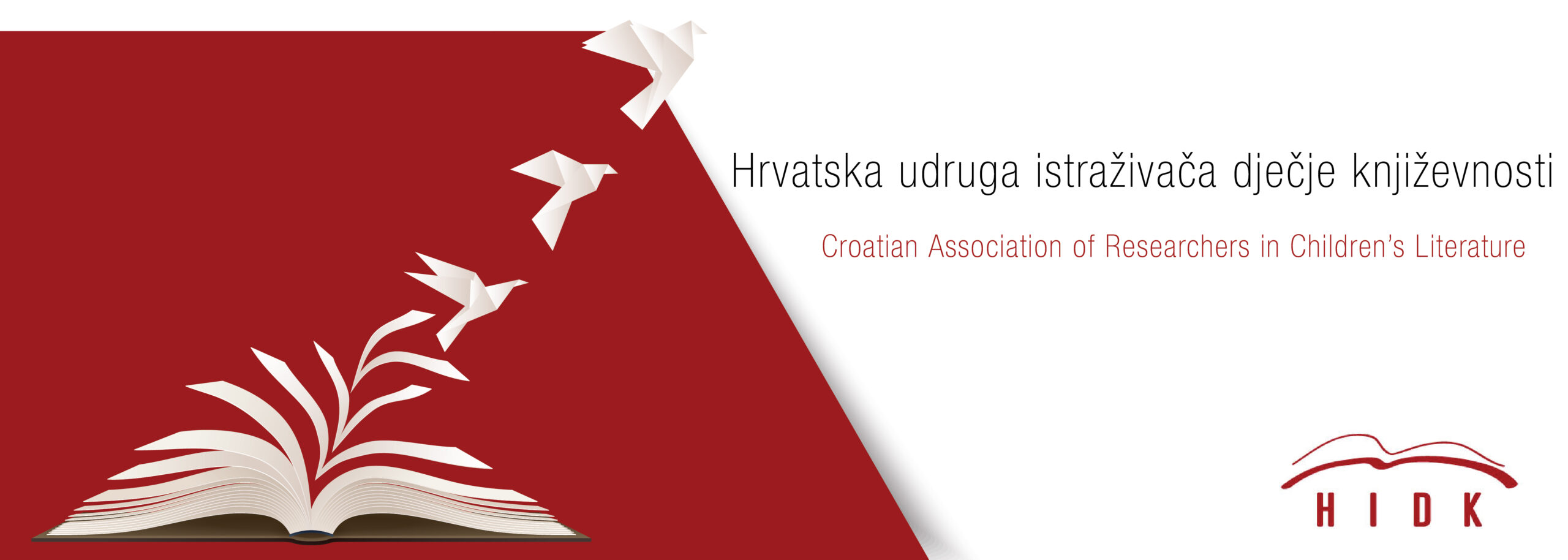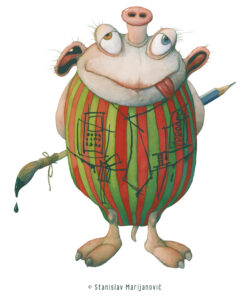The 9th International Conference of The European Network of Picturebook Research
28–29 September 2023
Osijek, Croatia
Organised by the European Network of Picturebook Research and the Croatian Association of Researchers in Children’s Literature (CARCL)
NEW: Call for Attendance
Please find it here.
Important links
Should you have any further inquiries or require additional information, please contact us at: enprconf2023@gmail.com
The general theme of the conference addresses the complex relationship between fiction and reality as a topic that is highly relevant for the picturebook format. Drawing on Barbara Bader’s famous definition (1976: 1), we may state that the picturebook as an art form hinges on the interdependence of fiction and reality. Our intention is to initiate a discussion of various aspects of this relationship in picturebooks and to explore the status of the picturebook as a kind of artefact in regard to these two realms.
In picturebooks, this relationship can be observed from different angles, such as semiotic structure, the fiction-nonfiction divide, materiality, metafiction, the reading process, and others. The semiotic structure of the picturebook depends on the ways meanings are conveyed through pictures and words. We may explore which elements of these two media are real (fonts, design, three-dimensionality, covers, etc.), and which of them are purely fictional (characters, settings, actions). Regarding the fiction-nonfiction divide itself, fiction picturebooks often populate their worlds with people, objects or artefacts from the real world. On the other hand, nonfiction picturebooks may include fictional elements, such as fairies alongside chairs in alphabet books. Possible combinations of these elements create specific meanings. Besides, research has shown that the picturebook uses its materiality to convey meanings, which makes it a real object on the threshold of reality and fiction. It would be useful to explore how they coexist, and how the materiality of picturebooks as real-life objects challenges or supports their fictional content. This is only one way in which picturebooks expose their metafictionality, and their customary self-consciousness and frequent self-referentiality make it even more obvious. Finally, the “drama of the turning of the page” (Bader 1976: 1) puts the reader and the picturebook into a specific relationship to each other. The dialogue between the two picturebook discourses, words and pictures, can only happen in the process of reading. It is thus important to consider how reality and fiction meet in this process.
We hope that the conference will encourage us to explore how picturebooks raise some of the deepest existential questions through various encounters of fiction and reality, and how they do so in a way that is attainable to every reader, regardless of age. We also wish to better understand the ways in which picturebooks provide both an early aesthetic experience of the world and an important space for unique and differing perspectives throughout a lifetime, especially through their twofold, parallel existence in the domains of the real and the fictional.
We invite papers related to the overall theme of the conference. Possible areas of investigation include, but are not restricted to:
▪ The picturebook as a format (art form) between fiction and reality
▪ Materiality of picturebooks: where do fiction and reality meet?
▪ Visual and verbal intertextuality: referring to fact and referring to fiction
▪ Visual and verbal (narrative) strategies exposing the fictionality of picturebooks
▪ Fictional elements in nonfiction picturebooks: real or fictional?
▪ Factual elements in fictional picturebooks, their importance and their meanings
▪ Fantastic and realistic fiction vs. reality in picturebooks
▪ Cultural and historical facts and their impact on content interpretations (also in translation)
▪ Reading the picturebook as a process of establishing a relationship between fiction and reality
▪ Kinds of interactivity of picturebooks and the subtle borderline between fiction and reality.
Submission
Please send an abstract of 300 words maximum and a short biography of 100 words as two attached Word documents to ENPRconf2023@gmail.com. E-mails should have the subject line: Submission Picturebook Conference 2023.
Abstracts should include the following information:
- Author(s)
- Affiliation as you would like it to appear in the programme
- City and country
- E-mail address
- Title of proposal
- Text of proposal
- Five keywords
- Selected bibliography with academic sources (3-5 references)
- Area(s) of investigation (in reference to those suggested above)
Key information
- Submit to ENPRconf2023@gmail.com
- All abstracts and papers must be in English
- All submissions are blind reviewed
- Up to 40 proposals will be accepted for the conference based on their relevance for the general conference theme, originality and the overall quality of the proposal.
- Deadline for abstract submission: 15 February 2023
- Notification of acceptance: 31 March 2023
- Papers will be 20 minutes maximum followed by a 10-minute discussion.
Important dates / Fees
- Deadline for abstract submission: 15 February 2023
- Notification of acceptance: 31 March 2023
- Conference dates: 28-29 September 2023
- Post-conference excursion: 30 September 2023
- Regular fee: EUR 130 to be paid by 10 September 2023
- Online attendance fee: EUR 30 to be paid by 10 September 2023
Information about Osijek
Organizing Committee
Smiljana Narančić Kovač (University of Zagreb, Croatia), chair
Željka Flegar (University of Osijek, Croatia)
Bettina Kümmerling-Meibauer (University of Tübingen, Germany)
Sanja Lovrić Kralj (CARCL president, University of Zagreb, Croatia)
Ivana Milković (University of Zagreb, Croatia)
Ivana Marinić (University of Osijek, Croatia)
Vedrana Živković Zebec (University of Osijek, Croatia)
Nikola Novaković (University of Zagreb, Croatia), secretary
Reading Committee / Advisory Board
Evelyn Arizpe (University of Glasgow, United Kingdom)
Małgorzata Cackowska (University of Gdansk, Poland)
Marnie Campagnaro (University of Padova, Italy)
Yael Darr (Tel Aviv University, Israel)
Elina Druker (University of Stockholm, Sweden)
Nina Goga (Western Norway University of Applied Sciences in Bergen, Norway)
Bettina Kümmerling-Meibauer (University of Tübingen, Germany)
Smiljana Narančić Kovač (University of Zagreb, Croatia)
Partners
- Illustrations by: Stanislav Marijanović
- Art exhibition organized by: Academy of Arts and Culture in Osijek
- Conference venues: Hotel Waldinger, City and University Library in Osijek
- Sponsors: Biovitalis, Tourist Board of the City of Osijek, Tourist Board of Osijek-Baranja County, Slap
Should you have any further inquiries or require additional information, please contact us at: enprconf2023@gmail.com


